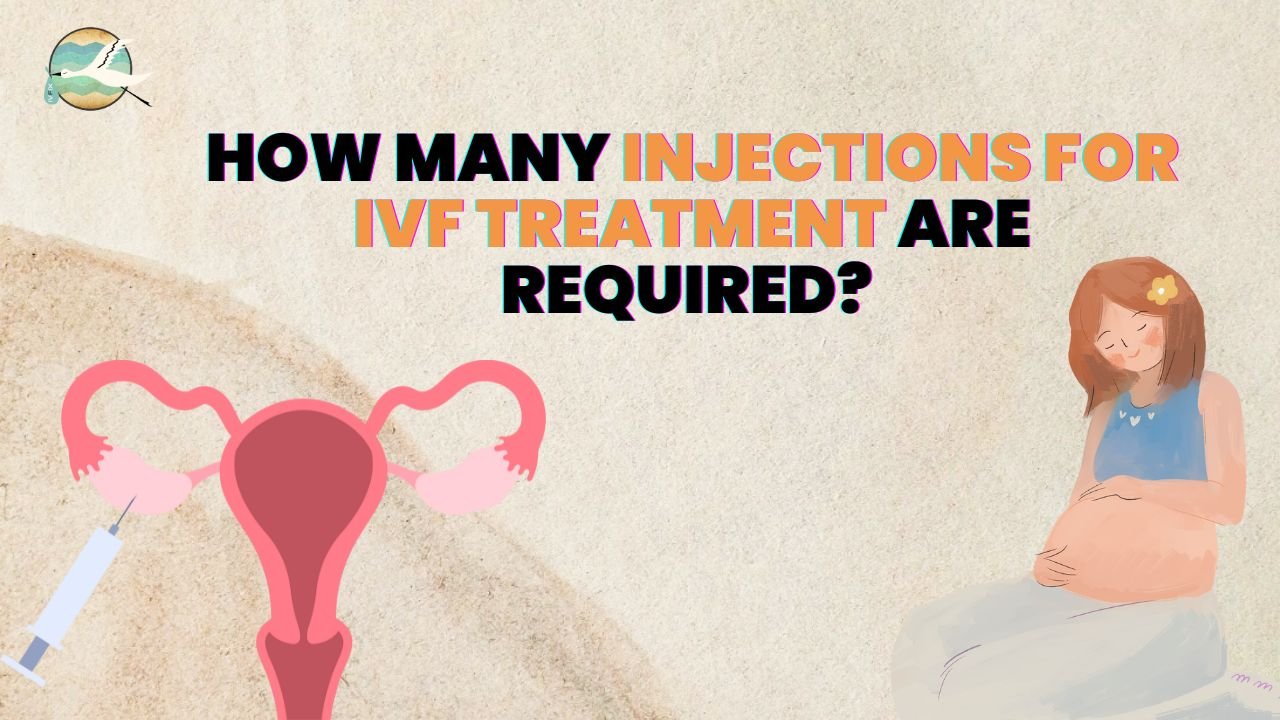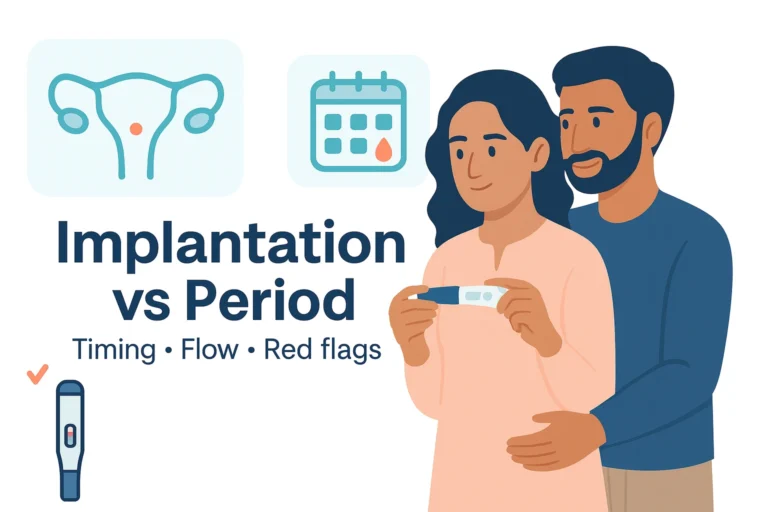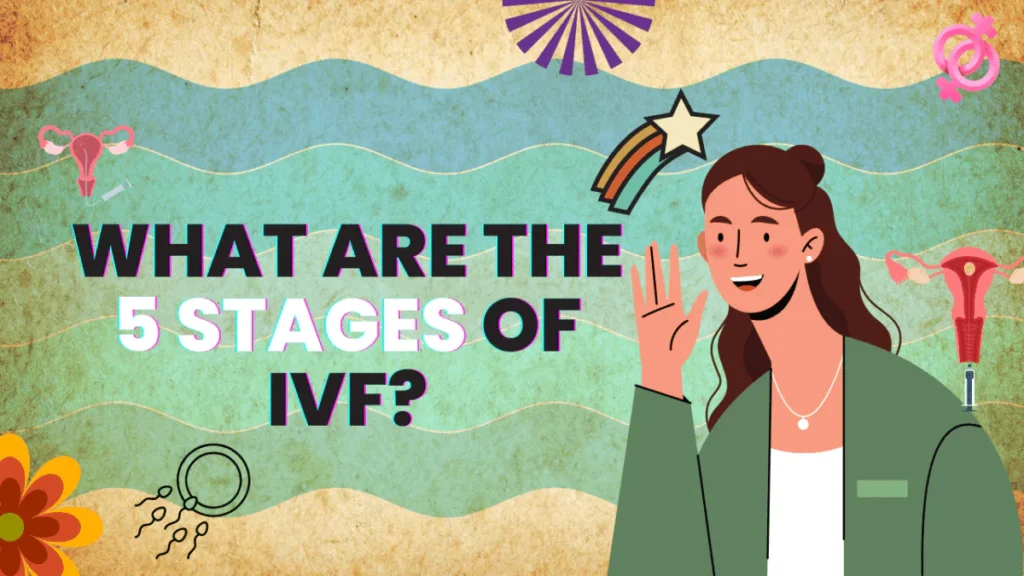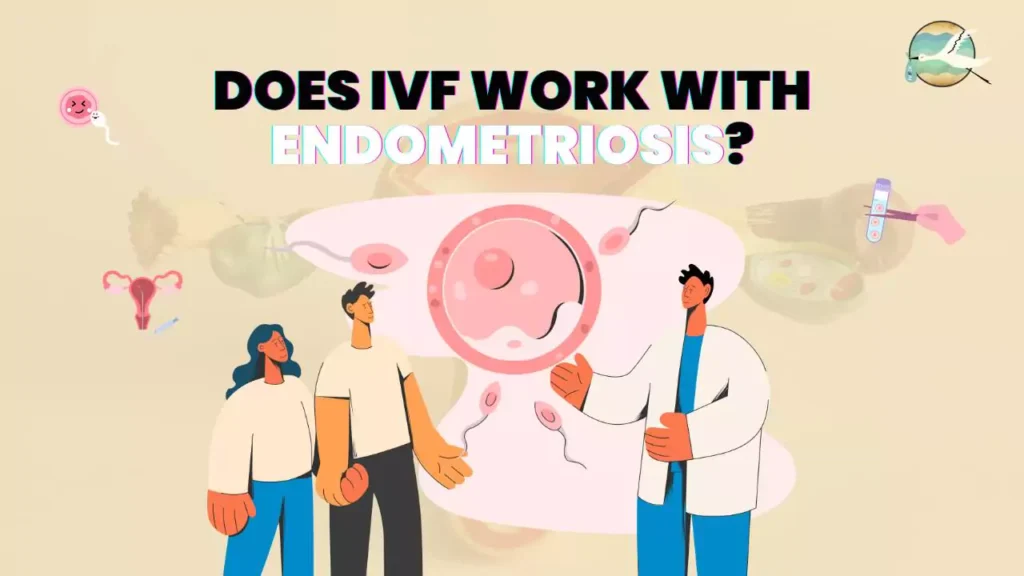Thorough information on the subject can help you learn how many injections are necessary for IVF treatment. Learn about the procedure, the necessary injections, and professional guidance for a successful IVF journey.
IVF treatments may have you wondering, “How many injections are involved in IVF treatment?” if you are considering getting it. IVF is a well-known form of assisted reproduction that has helped many couples realize their dream of starting a family. This in-depth article will explore the topic of IVF injections, looking at the many types, their applications, and what to expect throughout your IVF journey. We have accurate, current, and helpful information to help you, whether you’re thinking about IVF or are just curious about the process.
Why are IVF Injections necessary?
One of the most important requirements for IVF is injectable medication. One egg usually gets produced by the ovaries each month. The possibility of more eggs during IVF is increased by injectable medications that stimulate the ovaries.
Your ovaries would be stimulated to produce more eggs by the medications in IVF injections. So that the embryologist and doctor can select the best eggs for your IVF cycle, there will be more high-quality eggs available for extraction. With the help of these injectable medications, your infertility specialist can affect ovulation and change the dosage to achieve the desired effects.
These injections are given intramuscularly or subcutaneously, which means they are given into a muscle or the fat directly under the skin. The “Gonadotrophins” present in these injections are hormones that affect the ovaries. During IVF, gonadotrophins such as luteinizing hormones (LH) and follicle-stimulating hormones (FSH) are injected. For the patient’s final egg maturation, a “Trigger Shot” containing human chorionic gonadotrophin or a GnRH analog is also given. After embryo transfer, progesterone may also be administered in injectable form as support.

How Many Injections for IVF Treatment?
The IVF injection protocol is chosen by the expert doctor and varies from clinic to clinic. This may involve one shot or more per day for a week or ten days. Your doctor will customize your IVF treatment before deciding which protocol to use for you. The doctor keeps track of the follicles in the ovaries using ultrasounds and blood tests to make sure that the dosage is adjusted to your needs and that the trigger shot, which is crucial for ovulation induction, can be administered when your infertility doctor advises. To increase IVF success rates, it’s crucial to follow the protocol your doctor has created.
Are Ivf Injections Painful?

IVF injections may cause some people only minor discomfort while worrying others. Numerous factors affect this:
- What type of IVF injection delivery method is used—subcutaneous or intramuscular?
- How at ease are you with the idea of using an injection needle?
- Psychiatric variables
- creating the injection
- The method of administering injections
IVF injections may not be intimidating or painful to people who aren’t afraid of injections. However, if you are someone who has a needle phobia, you might not feel at ease at first. Even though modern injections used in IVF have finer needles, those who are averse to injections may find it challenging to administer these injections on their own.
However, because IVF injections play such a significant role in this therapy, you must discuss your worries with your infertility specialist. You might feel more at ease taking multiple injections for IVF with their assistance. To lessen any pain associated with IVF injections, less painful shots are now readily available, and alternatives to injectables like the vaginal route may be suggested.
Here are some pointers to help you feel more at ease with IVF injections:
- To relax your muscles before the injections, practice deep breathing. The injection may hurt if the muscles are tense.
- Ask your doctor if a nurse can administer IVF injections on your behalf if you’re nervous about doing it yourself.
- To assist you in better managing your stress related to needles, speak with a psychologist. They can advise behavioral changes and therapy to make you less afraid of needles.
- If the injection site becomes painful, switch it out. Before doing this, always consult your doctor, and then follow their advice.
- To reduce the pain and soreness from the injection, inquire with your doctor about using medication. Never self-medicate, and always seek medical advice before ingesting or topically applying any medication.
- Learn from nurses how to reduce the discomfort of injecting IVF medications. Use the methods you have been taught without ever straying from them.
- By rewarding yourself with a tasty treat or a little relaxation after the injection, you can create positive associations with IVF injections. By doing this, you’ll be able to look at the positives rather than just the IVF injections.
Making you comfortable should be a top priority for the infertility specialist because receiving IVF injections is a crucial component of IVF treatment. To ensure that the success rates of your fertility treatments can be maximized, always bring up any concerns you have with your doctor and strictly adhere to the protocol they have advised. By changing dosages, recommending modifications, and providing you with knowledge and advice that will make it simpler for you to receive these IVF injections, your doctor can address your specific concerns.
IVF Injections Side Effects
The following side effects are sometimes associated with IVF injections:
- Bloating
- Irritability
- Headaches
- Hot Flashes
- Breast tenderness
- Nausea
- Blurred vision
- Changes in cervical mucus
- IVF treatment-related complications
- Bruising at the injection site
Discuss any unusual side effects right away with your doctor if you notice them.
What are the costs of IVF injections?

IVF injections can cost anywhere between a few thousand and more than a lakh. The formulations, delivery method, necessary number of injections, and quality are just a few of the variables that would affect it.
The injection protocol would be included in your IVF treatment by your doctor, increasing the chance that your IVF cycle would be successful. Customized care is essential to raising the success rates of IVF treatment because one-size-fits-all is not the right strategy in this field.
IVF injection costs should be discussed with your doctors because they can quickly add up and drive up the price of your IVF treatment. In order for you to make educated decisions and prepare financially for your IVF treatment, patient-centered clinics are upfront about the costs of IVF injections as well as letting you know about the various options that may be useful for you.
Expert Tips for a Successful IVF Journey
It can be physically and emotionally taxing to start an IVF journey. Here are some professional pointers to help you handle the procedure with assurance:
- Stay Positive and Informed: Keep a good attitude and educate yourself on the IVF procedure. Anxiety can be reduced and a sense of control can be achieved by knowing what to anticipate.
- Follow the Treatment Plan: IVF may present emotional difficulties. For help navigating the ups and downs of the journey, turn to friends, family, or counseling services.
- Seek Emotional Support: IVF may present emotional difficulties. For help navigating the ups and downs of the journey, turn to friends, family, or counseling services.
- Lead a Healthy Lifestyle: Make living a healthy lifestyle a priority by incorporating a balanced diet, consistent exercise, and stress management strategies. Your IVF experience might be favorably impacted by healthy behaviors.
- Connect with Support Groups: You can meet people going through a similar experience by joining IVF support groups or online forums, which can give you a sense of community and encouragement.
- Communicate with Your Partner: Throughout the IVF process, keep the lines of communication with your partner open and honest. Lean on one another for understanding and support.
Also Read:- What is a Good AMH Level to Get Pregnant?
FAQs About Injections for IVF Treatment
Q. What does IVF stand for?
IVF stands for in vitro fertilization, which refers to fertilization that occurs outside of the body in a dish.
Q. IVF injections—are they painful?
Although the needles used for IVF injections are extremely small, they may nevertheless cause some discomfort. Numerous people claim that the procedure is comfortable and that any discomfort is just temporary.
Q. Can I administer the injections myself?
IVF injections are typically self-administered at home. On how to correctly administer each injection, your fertility nurse will provide you with comprehensive instructions.
Q. How often will I need to take injections?
Depending on the exact IVF protocol, different injections are given more frequently. While some shots are administered regularly, others could be less frequently.
Q. Can I reuse needles for injections?
Needles should never be used again. A fresh, sterile needle should be used for each injection to reduce the chance of infection.
Q. Are there any side effects of IVF injections?
Mild bruising or redness at the injection site are frequent side effects of IVF injections. Patients occasionally report hormonal side effects such as mood changes or bloating.
Q. What happens if I miss an injection?
For advice on what to do if you accidentally forget to take an injection, get in touch with your reproductive clinic or nurse right away.
Conclusion: Injections for IVF Treatment
IVF treatment can be a life-changing experience that gives couples who want to start families hope and joy. Although the amount of injections needed for IVF treatment can vary, each one is essential in triggering the ovaries and getting the body ready for pregnancy. You can embark on your IVF journey with optimism and confidence by comprehending the IVF injection procedure and paying attention to professional advice.
Keep in mind that each person’s experience with IVF is distinct, and having a supportive medical team and an optimistic perspective can make a world of difference. So enjoy the ride, educate yourself, and take care of yourself as you go through this transformation.








[…] Read More: How Many Injections for IVF Treatment? […]